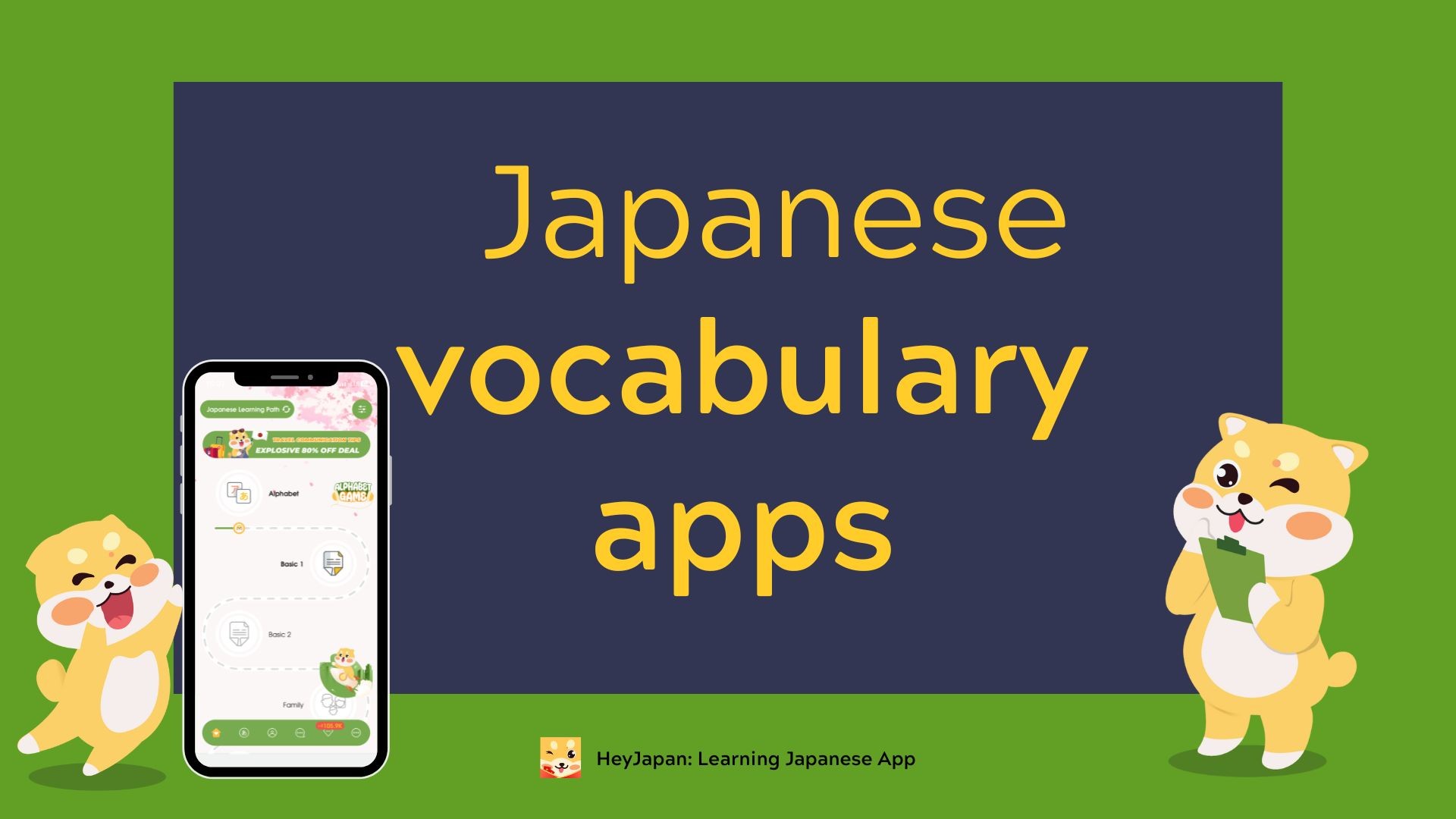- 1.Why Learn Japanese for Travel?
- 2. Essential Japanese Phrases for Travelers
- 3. Learn Japanese like a pro
- 3.1 Basic Grammar and Sentence Structure
- 3.3 Learning Resources for Japanese Language
- 3.4 Speaking and Listening Practice
- 3.5 Overcoming Challenges in Learning Japanese
- 3.6 Recommended Books for Learning Japanese
- 4. Must-Visit Language Attractions in Japan
- 5. Conclusion
- FAQs
Planning a visit to Japan? Acquiring knowledge of the Japanese language can significantly enrich your travel adventure and enable seamless communication with the local community.In this article, we will provide you with valuable insights on how to learn Japanese for travel like a pro. From essential phrases to language learning resources, we've got you covered!
1.Why Learn Japanese for Travel?
Learning Japanese opens doors to a whole new level of interaction and engagement with the local culture. While English is widely spoken in popular tourist destinations, many locals appreciate the effort put into learning their language. Here are a few reasons why learning Japanese for travel is highly beneficial:
- Enhanced Cultural Experience: Understanding the Japanese language enables you to connect with locals on a deeper level and gain insights into their customs, traditions, and way of life.
- Improved Communication: Learning basic Japanese phrases and expressions allows you to navigate daily situations like ordering food, asking for directions, and seeking assistance.
- Showing Respect: Making an effort to learn the local language demonstrates respect for the country and its people, fostering positive interactions and memorable experiences.
- Discover Hidden Gems: By speaking Japanese, you can explore off-the-beaten-path locations, interact with locals, and discover hidden gems that are often inaccessible to non-Japanese speakers.
2. Essential Japanese Phrases for Travelers
Before delving deeper into the Japanese language, it's essential to grasp some basic phrases to help you get started. Here are a few useful expressions that will come in handy during your travels:
- Greetings: Master simple greetings like "Konnichiwa" (Hello), "Arigatou gozaimasu" (Thank you), and "Sumimasen" (Excuse me).
- Introduction: Learn how to introduce yourself politely, including phrases like "Watashi wa [your name] desu" (I am [your name]) and "Yoroshiku onegaishimasu" (Nice to meet you).
- Asking for Help: Familiarize yourself with phrases such as "Onegaishimasu" (Please) and "Tetsudatte kudasai" (Can you help me?).
- Ordering Food: Know how to order food by using expressions like "Kore o kudasai" (Please give me this) and "Osusume wa nan desu ka?" (What do you recommend?).
- Directions: Learn phrases related to asking for directions, such as "Doko desu ka?" (Where is it?) and "Migi" (Right), "Hidari" (Left).

Remember to practice these phrases to familiarize yourself with pronunciation and intonation
3. Learn Japanese like a pro
3.1 Basic Grammar and Sentence Structure
Understanding basic grammar and sentence structure is essential for constructing meaningful sentences in Japanese. Here are a few key concepts to get you started:
- Word Order: Japanese follows a subject-object-verb (SOV) word order. For example, "Watashi wa Tokyo e iku" translates to "I am going to Tokyo."
- Particles: Pay attention to particles like "wa," "ga," and "no" as they play a crucial role in indicating subjects, objects, and possessives in a sentence.
- Verb Conjugation: Verbs change forms depending on tense, politeness level, and sentence structure. Understanding verb conjugation is vital for effective communication.
- Noun and Adjective Usage: Differentiate between nouns and adjectives and understand their respective usage in sentences.
Read more: Crack the code: Basic Japanese grammar made simple
3.2. Japanese Writing Systems
The Japanese language utilizes three writing systems: Hiragana, Katakana, and Kanji. Each system serves a specific purpose:
- Hiragana: Used for native Japanese words and grammatical particles.
- Katakana: Primarily used for foreign loanwords and onomatopoeic words.
- Kanji: Adopted from Chinese characters, Kanji represents complex words, nouns, verbs, and adjectives.

Learning these writing systems will enable you to read and understand various texts and signs throughout Japan.
3.3 Learning Resources for Japanese Language
Learning Japanese for travel doesn't have to be daunting. Numerous resources can assist you in acquiring the language skills you need. Here are a few popular options:
- Language Learning Apps: Utilize mobile apps like Duolingo, HeyJapan and Rosetta Stone to learn Japanese on the go. These apps provide interactive exercises and quizzes for effective learning. Use an app like Mazii dict to look up new words if needed.
- Online Courses: Enroll in online courses offered by reputable language learning platforms. These courses provide comprehensive lessons taught by experienced instructors.
- Tutoring Services: Consider hiring a private tutor for personalized lessons tailored to your learning goals and schedule.
- Language Exchange Programs: Participate in language exchange programs where you can practice Japanese with native speakers while helping them learn your native language. Here are five online and free language exchange programs for English speakers who want to learn Japanese:
- Italki Language Exchange: Italki offers a language exchange platform where you can find Japanese speakers interested in practicing English. You can connect with language partners through messaging or video calls to practice conversation skills.
- Lingoglobe: Lingoglobe provides a language exchange platform where you can connect with Japanese native speakers who want to practice English. You can arrange language exchange sessions through video calls or voice chats.
- Language Exchange Community: The Language Exchange Community website offers a platform to find language partners for Japanese practice. You can create a profile, search for language exchange partners, and communicate through messaging, voice calls, or video calls.
- Easy Language Exchange: Easy Language Exchange is an online platform that connects language learners worldwide. You can find Japanese speakers interested in practicing English and engage in language exchange through various communication methods.
- Polyglot Club: Polyglot Club provides a language exchange community where you can connect with Japanese speakers for language practice. The platform offers chat rooms, forums, and language exchange events to interact with native speakers and improve your Japanese skills.
These online platforms allow you to find language exchange partners and practice Japanese through messaging, voice calls, or video calls. Remember to establish a mutually beneficial language learning partnership and respect each other's learning goals and language practice time.
3.4 Speaking and Listening Practice
To become proficient in Japanese, it's crucial to practice speaking and listening skills. Here are a few methods to improve your conversational abilities:
- Language Partners: Find language partners online or locally to engage in conversation practice. You can join language exchange groups or use language learning platforms to connect with fellow learners. You can find someone with the same passion for traveling to Japan, so the process of you two studying together will become even more wonderful.
- Language Meetups: Attend language meetups or conversation circles in your area to interact with native speakers and practice your Japanese in a supportive environment. If you can't find offline communities, you can join online groups. In terms of meaning, this is equally valid.
- Immersive Experiences: Consider visiting Japan for an immersive language learning experience. Stay with a host family or join language immersion programs that offer a complete Japanese environment. This is a great way to immerse yourself in the Japanese culture environment and improve your language skills.
There are several websites that connect foreigners with Japanese host families for cultural exchange and homestay experiences. Here are a few popular options:
- Homestay.com: Homestay.com is a platform that connects travelers with host families around the world, including Japan. You can browse through a wide selection of host families, read reviews, and choose a suitable match for your cultural immersion experience.
- Homestay in Japan: Homestay in Japan is a website specifically designed to connect foreigners with Japanese host families. It offers various homestay options across different regions in Japan, allowing you to experience the local culture and practice Japanese with your host family.
- Go! Go! Nihon Homestay: Go! Go! Nihon is a comprehensive platform that assists individuals in studying and living in Japan. They offer a homestay program where you can live with a Japanese host family while studying or exploring the country.
When using these websites, you can specify your preferences, such as the duration of the homestay, location, and any specific requirements or interests you have. It's important to communicate with your potential host family beforehand to ensure compatibility and discuss expectations for your stay.
3.5 Overcoming Challenges in Learning Japanese
Learning Japanese, like any language, comes with its own set of challenges. Here are a few common hurdles and strategies to overcome them:
- Complex Writing System: Break down the writing systems into manageable parts and practice regularly to build familiarity and confidence.
- Politeness Levels: Understand the various levels of politeness in Japanese and learn when and how to use them appropriately.
- Pronunciation: Focus on mastering pronunciation by listening to native speakers, repeating phrases, and seeking feedback from language partners or tutors.
- Grammar Complexity: Take a systematic approach to grammar, starting with basic concepts and gradually building upon them.
Remember, learning a new language is a journey that requires patience and dedication. Embrace the process and enjoy the progress you make along the way.
3.6 Recommended Books for Learning Japanese
Supplement your language learning journey with these highly recommended books:
- "Genki: An Integrated Course in Elementary Japanese" by Eri Banno, Yoko Ikeda, and Yutaka Ohno.
- "Japanese from Zero!" by George Trombley and Yukari Takenaka.
- "Remembering the Kanji" by James W. Heisig.
- "Breaking into Japanese Literature" by Giles Murray.
These books provide comprehensive lessons, exercises, and cultural insights to enhance your Japanese language skills.
4. Must-Visit Language Attractions in Japan
While exploring Japan, take the opportunity to visit language-related attractions that offer unique insights into the Japanese language and culture. Here are a few notable places to include in your itinerary:
- Kanji Museums: Visit museums dedicated to the Japanese writing systems, where you can learn about their history and significance.
Link: https://www.kyoto-museums.jp/en/museum/east/3873/
- Calligraphy Workshops: Take part in calligraphy workshops to learn the art of writing Kanji characters with a brush.
Link: https://exploreshizuoka.jp/activities/places/the-art-of-shodo-japanese-calligraphy-workshop/
- Language Exchange Events: Attend language exchange events in major cities like Tokyo, Kyoto, and Osaka to meet fellow language enthusiasts and practice your Japanese.
- Historical Sites: Explore historical sites such as temples and shrines, where you can see ancient Kanji inscriptions and experience the roots of the Japanese language.
5. Conclusion
Learning Japanese for travel can be a rewarding and enriching experience. By acquiring basic language skills, understanding cultural nuances, and immersing yourself in the Japanese environment, you can unlock the language barrier and forge meaningful connections with locals. Remember to practice regularly, embrace the challenges, and enjoy the journey of learning a fascinating language that will enhance your travel adventures in Japan.
FAQs
Q1: How long does it take to learn Japanese for travel purposes?
Learning Japanese for travel purposes can vary depending on your dedication, study time, and previous language learning experience. With consistent effort and practice, you can acquire basic conversational skills within a few months.
Q2: Is it necessary to learn Kanji to travel in Japan?
While learning Kanji is not mandatory for travel, it significantly enhances your ability to read signs, menus, and understand written information. Familiarizing yourself with common Kanji characters can greatly facilitate your travel experience.
Q3: Can I learn Japanese online without attending physical classes?
Absolutely! Numerous online resources, language learning apps, and virtual tutoring services provide comprehensive Japanese language courses and materials. You can learn Japanese entirely online at your own pace.
Q4: What are some common cultural taboos in Japan?
Some common cultural taboos in Japan include wearing shoes indoors, eating or drinking while walking, and blowing your nose in public. It's advisable to research and respect local customs to ensure a positive cultural experience.
Q5: Are there any scholarships available for studying Japanese in Japan?
Yes, various scholarships are available for studying Japanese in Japan. Research scholarship programs such as the Japanese Government (MEXT) Scholarship, the Japan Student Services Organization (JASSO) Scholarship, and private scholarships offered by universities and organizations.
Learn basic Japanese with HeyJapan
iOS: https://apps.apple.com/us/app/heyjapan-learn-basic-japanese/id1576311051
Android: https://play.google.com/store/apps/details?id=com.eup.heyjapan









